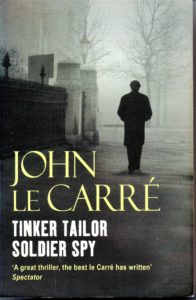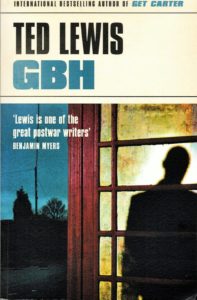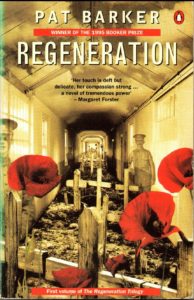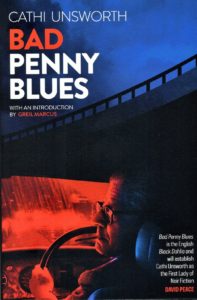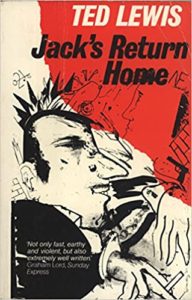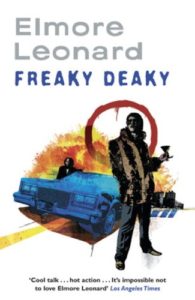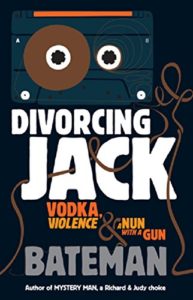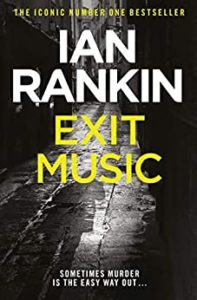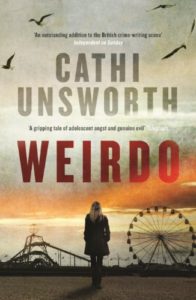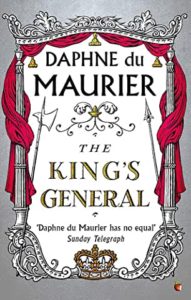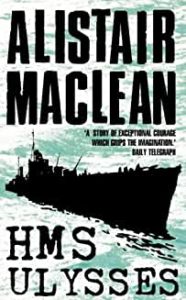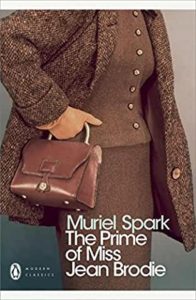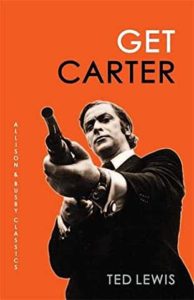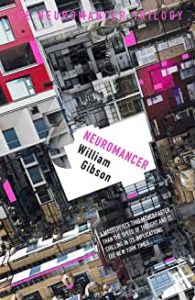Decades: Compiling the Ultimate Library with Nick Triplow
So soon we are back! I have the honour of welcoming a new guest to Grab This Book today. Another booklover who has five wonderful books to add to the shelves of my Decades Library. Five books which Nick Triplow feels no self-respecting book collection should be without.
Before I allow Nick to introduce himself and share his five chosen books I will quickly recap the Decades challenge. In assembling the Decades Library I ask each guest to nominate ANY five books they would like to see added to the collection. However, there may only be one book per decade over any five consecutive decades. So it’s five books from a 50 year publication span. I want the Library to give readers the best reading choices.
I would also like to remind you that all the books which feature in my Decades collection can be purchased through the Grab This Book Decades page at bookshop.org : https://uk.bookshop.org/lists/grab-this-book-the-decades-library This is an affiliate site and 10% of the cover price will go towards supporting Indy Bookshops. I also get a small cut. You can visit the site to see all the books which have been nominated by my guests. If you see a book which takes your fancy you can see the guest responsible for nominating that book (I have added this info) and return here to read their original post. The search function in the top left of this page is your friend.
This week brings news that Nick Triplow will be writing a forward to two Ted Lewis novels which will be returned to print by No Exit Press. E-books are out next month for Jack Carter’s Law and Billy Rags, paperbacks following in Spring 2022. I am thrilled that Nick is joining me today so it’s time I shuffled off and handed him the microphone…
DECADES
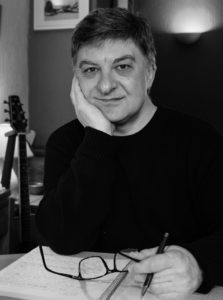 I’m Nick Triplow, author of the biography of noir fiction pioneer, Ted Lewis, Getting Carter: Ted Lewis and the Birth of Brit Noir; the South London crime noir novel, Frank’s Wild Years; and the social history books Family Ties, The Women They Left Behind, Distant Water, and Pattie Slappers; well as short stories, including Face Value, a winner of the Northern Crime Short Story competition.
I’m Nick Triplow, author of the biography of noir fiction pioneer, Ted Lewis, Getting Carter: Ted Lewis and the Birth of Brit Noir; the South London crime noir novel, Frank’s Wild Years; and the social history books Family Ties, The Women They Left Behind, Distant Water, and Pattie Slappers; well as short stories, including Face Value, a winner of the Northern Crime Short Story competition.
Along with Nick Quantrill and Nikki East, I’m a founder/director of Hull Noir Crime Fiction Festival and co-host of Hull Noir’s Three Book Friday (Hull Noir YouTube channel). I’m a graduate of Middlesex University’s English, Writing & Publishing degree and the MA Writing course at Sheffield Hallam.
Originally from South East London, I moved to Barton upon Humber (still south of the river) in 2001.
PHILIP LARKIN – THE WHITSUN WEDDINGS 1964
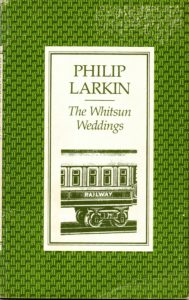 Larkin had arrived in Hull in 1955. Interviewed some years later, he said, ‘I never thought about Hull until I was here. Having got here, it suits me in many ways. It is a little on the edge of things.’ Exactly that. The poems are about the reality of Larkin’s life and reflections on the society that surrounds hi. They have a sense of Saturday teatime melancholy: a recognition of how time and tide diminishes each of us and of the details that matter fleetingly along the way.
Larkin had arrived in Hull in 1955. Interviewed some years later, he said, ‘I never thought about Hull until I was here. Having got here, it suits me in many ways. It is a little on the edge of things.’ Exactly that. The poems are about the reality of Larkin’s life and reflections on the society that surrounds hi. They have a sense of Saturday teatime melancholy: a recognition of how time and tide diminishes each of us and of the details that matter fleetingly along the way.
Many of the poems in The Whitsun Weddings have an anecdotal, conversational tone. The language is colloquial, the poems entirely accessible. To capture a sense of the place and how perfectly Larkin walks us into the lives of people mostly like us, I can recommend watching Dave Lee’s short film of Here, read by Tom Courtenay:
[https://www.youtube.com/watch?v=JZEgh5vhPVk]
JOHN LE CARRE – TINKER, TAILOR, SOLDIER, SPY 1974
In John Le Carré’s classic cold war novel, the spymaster George Smiley has a classic ‘tell’. In moments of reflection, the man charged with hunting for the Soviet agent buried deep inside the British secret intelligence service, cleans his glasses with ‘the fat end of his tie’, a character trait, from which we infer that somehow, beneath the multiple layers of his intellect, Smiley has access to a deeper tier of perception than those around him.
I’m on my third copy, the other two having fallen apart on the road somewhere. It has been, by turns, a companion novel on suburban commutes, through sleepless nights in box rooms in shared flats, in London parks on summer afternoons. You get the picture: it’s a book for life.
TED LEWIS – GBH 1980
As Ted Lewis’s biographer, I should register an interest.
The critical reappraisal that followed the No Exit Press reissue of GBH last year rightly regarded it as an overlooked noir classic. A brief biographical note: by 1979, Lewis was unwell, coping with diabetes and the effects of alcoholism. Taking himself to the places GBH inhabits demanded commitment to the depths of his own imagination and experience. This is the book about which Derek Raymond, himself no stranger to dark themes in his writing, wrote, was ‘a novel as direct as it is stunning … which never relaxes its grip for a paragraph … an example of how dangerous writing can really be when it is done properly.’
PAT BARKER – REGENERATION 1991
A quite extraordinary piece of historical fiction that says as much to us now about the insanity of mental health and its treatment and it does the course and causes of the trauma among First World War combatants, and the humanity of the doctors, namely W.H. Rivers, who pioneered approaches that regard patients as individuals, rather than the sum of their symptoms.
It’s a superbly written story whose historical detail blends seamlessly into the narrative texture. It’s immediate, alarming, thought provoking and thoroughly entertaining. It’s also a go-to for me as a writer. If I’m stuck, I’ll take Regeneration down from the shelf and ask: how does Pat do it?
CATHI UNSWORTH – BAD PENNY BLUES 2009
Republished by Strange Attractor Press earlier this year with a striking mod-noir cover design and an introduction by author, music journalist and cultural critic, Greil Marcus, Bad Penny Blues is a fictionalised account of the case of a killer (or killers) who, between June 1959 and February 1965, murdered eight women and left their bodies in or along the Thames in West London.
Seen through the eyes of Stella Reade, a young art student and designer haunted by visions of the murdered women and Pete Bradley, an aid to the CID at Notting Hill Police Station transferred to the notorious West End Central, Cathi Unsworth shows what the crime novel, particularly one so committed to the truth, is capable of. It’s complex and coercive, a classic London noir.
My thanks to Nick for these five brilliant recommendations. Regeneration released when I was a young bookseller working my way through university holidays. I remember selling dozens of copies and every single time I rang a sale of Regeneration through the till I was reminded of my colleagues mocking me as when I first heard about it as I thought it was a new book about Doctor Who. I was very much a young geek in training – happy days.
DECADES WILL RETURN
